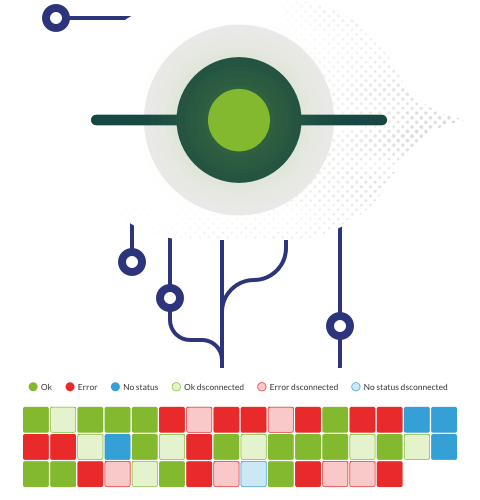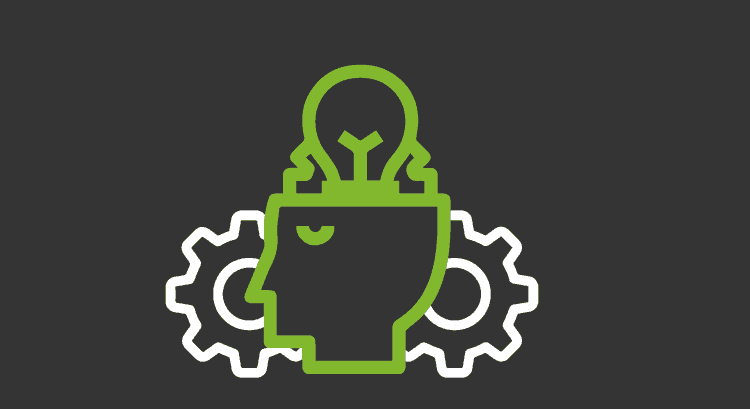igital Disruption; What It Is and How It Affects Companies
Changes bring new expressions to identify new phenomena, and in times of continuous change language is transformed.
Over the past few years you’ve probably heard about digital disruption. Digital disruption deals with the effects of the processes of change that we are experiencing as a result of the entry of technologies in companies and the market.
In this article we will learn what digital disruption is and some of these profound and sometimes traumatic changes. Let’s go!
What are we talking about when we talk about digital disruption?
Digital disruption refers to the set of ground-breaking changes that affect companies both as a result of the emergence of new digital technologies on the market and when they introduce them into various areas of their operations, such as production, organisation or relations with their customers.
Nowadays, when companies that do not undertake a deep digital transformation risk being left behind, we must not only pay attention to the process, but we also care very much about the strong effects that digital technologies can have on both the company and the environment.
But what changes are we talking about exactly? Let’s look at some examples.
5 aspects of digital disruption
– Change of mentality
The entry of digital technologies affects everyone in the company, but now we are going to focus on managers.
From their role, which entails greater responsibilities, we know that managers are especially involved in the process of digital transformation. But a strategic vision cannot remain the blind introduction of new technologies, but must be oriented to the success of the company and think about the consequences of the measures taken.
Digital disruption, as its name suggests, is ground-breaking, and requires a strong change of mentality from positions of responsibility. We could say that managers will have to “think digital” from now on. The survival of your companies will often depend on it.
– A new way of working
Digital technologies are used in the day-to-day of every company, this is something that everyone knows. Not in vain, we have been using them for decades, and they have already caused very profound changes.
However, the wave continues to grow and affects businesses in an increasingly forceful way. Nowadays companies whose operation does not depend crucially on technology are rare. And that dependence increases. Large companies, and even many smaller ones, deploy, day by day, a vast technological network that allows them to function and is a sort of great nervous system on which the activity depends.
Concepts such as server, network or database were rarities just a few years ago in the same companies that today are given maximum attention. And it is that its activity depends on its good functioning; a change, without a doubt, of a great depth.
– A new market
The digital market is very different from traditional markets. New rules of the game, a wide range of possibilities, new players in the market…
This affects companies at all levels. Competition is multiplied by the tools that digital technologies provide. Change the channels of communication with customers, suppliers… And even the tastes and dynamics of the market change in a profound and surprising way.
And not only that. In addition, the digital market is intermingled with the traditional market and affects it decisively. Therefore, companies that do not take it into consideration will not only be out of the new game, but their classic business will be decisively affected.
– A different way of dealing with customers
Customers are at the centre of the digital transformation. New technologies have provided both users and companies with a multitude of opportunities to establish all kinds of relationships that were unthinkable just a few years ago. Social networks, apps, online shops, virtual communities… The tools are multiplying at the same time as personalization increases and the bond (sometimes even affective) between users and companies reaches unusual levels.
– New disruptive phenomena
All these changes are translated into concrete, striking phenomena that can even take the business model of a company.
Collaborative economy, growth hacking, IoT, Industry 4.0, fintech, blockchain… definitely, disruptive phenomena are multiplying, arise with an increasing frequency and force companies to be very attentive to new dynamics and to participate, if possible, in them.
These are some examples of how digital disruption is affecting both businesses and markets (and will continue to do so for years to come).
As we have already seen, technology is today fundamental for the proper functioning of the vast majority of companies. And in some it is so much that the attention must be maximum.
Luckily, as technology develops, so do the tools that control its performance. And among them the monitoring systems occupy a very relevant level.
Monitoring systems are responsible for controlling the technology used by a company (hardware, networks and communications, operating systems or applications, for example) in order to analyse its operation and performance, and to detect and warn about possible errors.
Now that we know this and its importance, how about spending a few minutes to know Pandora FMS?
Pandora FMS is flexible monitoring software, capable of monitoring devices, infrastructures, applications, services and business processes.
Do you want to get to know it a lot better? Click here: https://pandorafms.com/
Or you can also send us any query you may have about Pandora FMS. You can do this in a very simple way, thanks to the contact form that you will find at the following address: https://pandorafms.com/contact/
Our Pandora FMS team will be happy to assist you!
Pandora FMS’s editorial team is made up of a group of writers and IT professionals with one thing in common: their passion for computer system monitoring. Pandora FMS’s editorial team is made up of a group of writers and IT professionals with one thing in common: their passion for computer system monitoring.





















